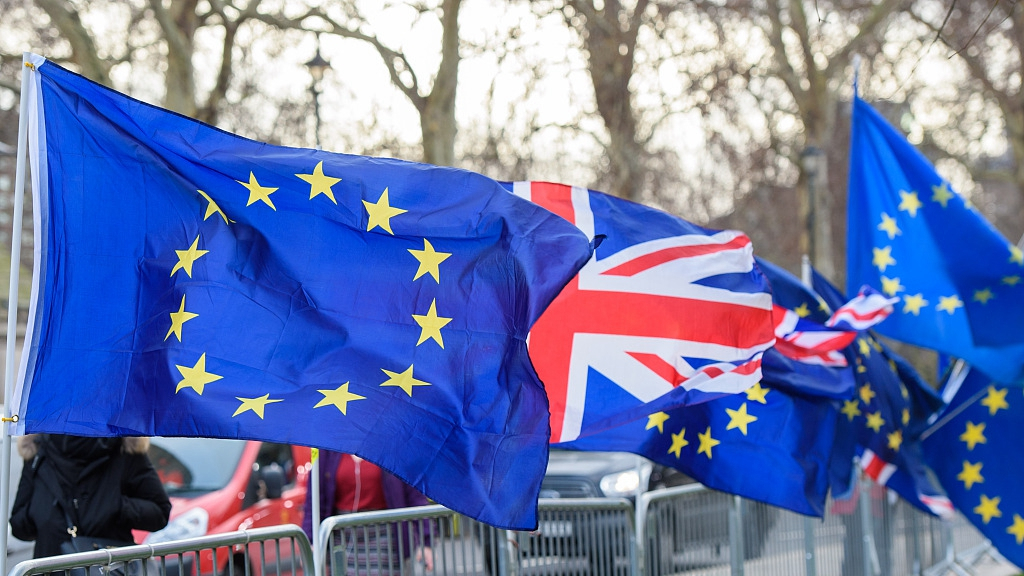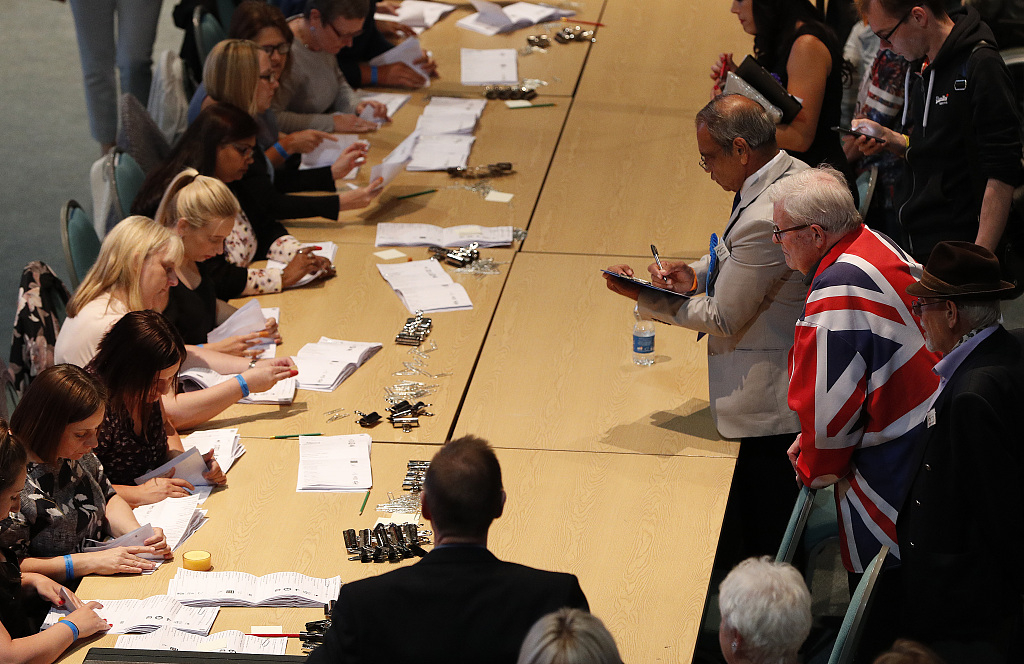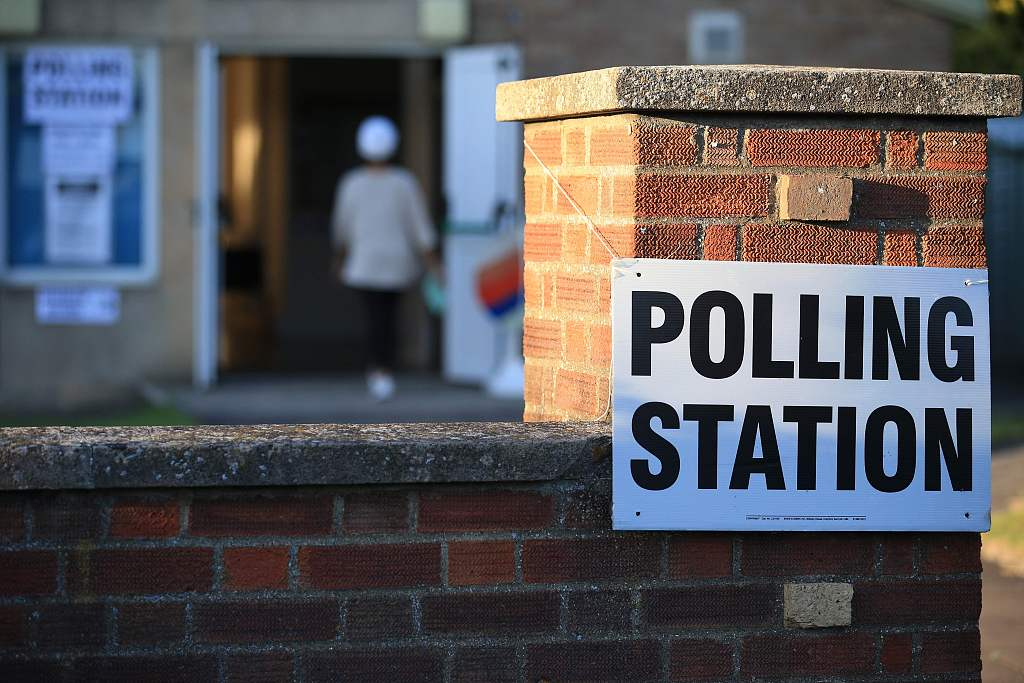
Opinion
09:57, 07-Jun-2019
Labour prevents Brexit Party's first seat in UK parliament
Chris Deacon

Editor's Note: Chris Deacon is a postgraduate researcher in politics and international relations at the University of London and previously worked as an international commercial lawyer. The article reflects the author's opinion, and not necessarily the views of CGTN.
The results of a dramatic by-election held in the constituency of Peterborough were announced overnight in the UK. Despite the district voting by a majority of 61 percent to leave the European Union in the 2016 referendum, the Labour Party was able to hold off the challenge of the newly-formed Brexit Party.
This came as a surprise to most, given bookmakers' odds putting the Brexit Party as clear favorites to win. Victory would have given the party its first MP in the UK's House of Commons and acted as a defiant challenge to the governing Conservative Party, who previously came a close second to Labour in Peterborough at the last election.
Regardless of the winner of the Peterborough by-election, however, the importance lies in how closely this contest was fought between Labour and the Brexit Party – the final result was extremely close. The performance of the Brexit Party, even in defeat, shows how seriously they need to be taken as a new force in British politics.
Some will have perceived the Brexit Party's victory in the recent European election as a temporary blip specific to that election only. It was not uncommon for Nigel Farage's previous party – the UK Independence Party (UKIP) – to perform very well in European elections too.

A teller in a union flag suit watches ballot papers being sorted at the by-election count center in Peterborough, England, June 6, 2019. /VCG Photo
A teller in a union flag suit watches ballot papers being sorted at the by-election count center in Peterborough, England, June 6, 2019. /VCG Photo
Indeed, they won the 2014 contest. They would then, however, usually move back to relative obscurity in parliamentary elections, struggling to win any seats at all.
The Brexit Party appears to be different. Despite being only a few months old, its popularity has continued since the EU elections, currently topping many parliamentary opinion polls.
The party's performance in Peterborough, especially the extent to which they have taken votes from the governing Conservative Party, shows how dangerous they will be at a general election called in the near future.
The very premise of the Brexit Party is to win the support of Brexit-supporting members of the public who have lost confidence in the government's ability to deliver Brexit. If a general election occurs before Brexit can be implemented, the likelihood of the Brexit Party winning multiple MPs at the expense of the Conservatives appears very high.
Combined with this, as occurred in the European elections, the main opposition Labour Party may be punished for its ambiguous stance on the Brexit issue by its majority Remain-supporting voters, who could flee to the unapologetically pro-Remain Liberal Democrats. This would also likely result in a large number of MPs being won by the Lib Dems.
Such a result in an imminent general election could pose major issues for the UK's political system, which has historically been premised on the maintenance of a two-party system, in modern times dominated by the Labour and Conservative parties.

The Christ the Carpenter Church Hall polling station in Peterborough, England, June 6, 2019. /VCG Photo
The Christ the Carpenter Church Hall polling station in Peterborough, England, June 6, 2019. /VCG Photo
The UK's constitutional system, supported by its electoral rules, is structured to function with a governing party enjoying a majority of MPs in the parliament (such that it may rule effectively), with a single, main opposition party challenging the governing party. Smaller parties exist but do not match the opposition party in their numbers.
An imminent election, however, could plausibly result in four parties winning at least 100 of the 650 seats on offer in the House of Commons, with the Scottish National Party not far behind in fifth place. This would be a decimation of the two-party system and extremely unwieldy for the UK's constitution.
In such circumstances, forming a stable government would be very difficult in a political system which is not used to consent and compromise. Yes, the Conservatives and Liberal Democrats successful maintained a coalition government from 2010 to 2015, but this arrangement had a clear dominant party, which would be less likely in this case.
These difficulties would be exacerbated by the prominence of the Brexit issue, regarding which it appears that the vast majority of MPs are unwilling to compromise. If difficulties in forming a stable majority in Parliament were to persist, the UK could well be forced to endure multiple elections until a durable coalition could be formed.
It is difficult to exaggerate the profound impact that Brexit is having on the nature of British politics. While much analysis has focused on the likely impact on the UK's economy, trade, and foreign relations, sweeping changes are also occurring in the UK's party system.
Over the coming months, as the Conservative leadership contest plays out, the Brexit deadline draws near yet again, and calls for a general election grow louder, we may well see the makings of a sea change in British politics.
(If you want to contribute and have specific expertise, please contact us at opinions@cgtn.com)

SITEMAP
Copyright © 2018 CGTN. Beijing ICP prepared NO.16065310-3
Copyright © 2018 CGTN. Beijing ICP prepared NO.16065310-3